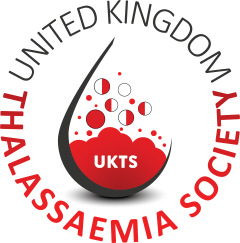Parents corner
Information
Read personal experiences from the NHS Antenatal Sickle Cell and Thalassaemia Screening Programme in women and couples at risk of having a baby affected by one of the conditions.
Thirteen women and couples who had recent experience of the NHS Sickle Cell and Thalassaemia Screening Programme were interviewed. Timeliness data at significant points in the screening pathway were collected on 16 pregnancies; women also shared stories from earlier pregnancies.
Responses and the experience of women and couples were diverse and people did not always act according to how they were assumed to act.
The belief that late testing is due to late presentation was not supported, all women first presented in pregnancy at less than 10 weeks gestation. The majority of women already knew they carried the gene for sickle cell disease or thalassaemia. Carrier status was also already known in the majority of men that carried the gene for thalassaemia or for sickle cell disease.
A common theme in the interviews was an assumption on the part of the service users that the healthcare professionals would recognise the risks and refer to counselling and offer of prenatal diagnosis (PND) promptly when carrier status was known. This was not the case even in families that already had a child or children affected by the condition. Some healthcare professionals did not assess the information given to them or were not trained to ask and evaluate genetic information. There was an assumption that ‘these issues’ would be picked up down the line by someone else that is more knowledgeable.
There was an expectation that key information told to one healthcare professional would be automatically recorded and shared with others.
In contrast, some women did not pass on information about carrier status or affected children possibly due to denial or fear of raising a difficult subject; as if by not mentioning it they were trying to treat their pregnancy as normal.
Several healthcare professionals lacked knowledge of the conditions and the screening pathway and did not recognise the need for prompt referral to counselling and PND.
All women and couples who were counselled by specialist haemoglobinopathy nurses and midwives reported positive experiences. Direct access to specialist sickle cell and thalassaemia (SCT) centres was really valued. They felt that only these specialist healthcare professionals understood the issues of an at-risk pregnancy and the need to expedite the screening process. Too often referral processes blocked rather than facilitated access to specialists and for some the offer of PND came too late in the pregnancy to allow reproductive choice.
Nine babies were born with one of the conditions, including one set of twins. Of these 5 women declined and 3 accepted PND. Although 7 out of 9 PND tests were performed by the 12 weeks and 6 days standard, unacceptable delays were encountered.
Three of the families interviewed said that they would opt for PND and termination of an affected baby, but only if it could be done within 120 days in accordance with the belief held by some Muslims of “ensoulment” at 120 days’ gestation. This was achieved in only one of the families and 2 families gave birth to affected babies.
Healthcare professionals should be aware that beliefs regarding termination of pregnancy vary and should not harbour any preconceptions about the choices a couple will make. It should also be borne in mind that women or couples may not make the same choice in every pregnancy.
User stories written by Elaine Miller and Iyamide Thomas.
Report written by Catherine Coppinger
This work was commissioned by the NHS Sickle Cell and Thalassaemia Screening Programme, Public Health England.

Thalassaemia Leaflets
- Carriers of Alpha Thalassaemia Leaflet
- About Alpha Thalassaemia – Published by TIF
- Read about Alpha 0
- Alpha 0 Faq’s
- About Sickle Cell Disorders – Published by TIF


